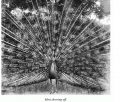Newspeak of Journalism

By MOHAMMAD VAZEERUDDIN
New Delhi (Syndicate Features): Most newspaper columnists and commentators tend to strut, giggle and wisecrack from the beginning “I” to the final “me”, while the man in the street feels that on the national stage India is enacting a kind of travesty of itself, spoken in Newspeak and performed by fake heroes and real buffoons and villains. Legislature, meant to scrutinize actions of the Executive, seems to have become some sort of a mart for swapping the small change of partisan abuse.
Seldom before have politicians been as generous with promises about the future as they now are.
Indeed, promises have been raining down on peaceful citizens like discount-sale advertisements even though those who destroy shrines are realizing the hard way that it is the shrines which have destroyed them instead, both politically and metaphorically.
But very few commentators and columnists seem to believe that is how things work, while a majority of the masses feel that they have seen the future and that it has, like Maugham’s breadwinner, disappeared. At the same time, however, they are sure it will be different from the past and the present.
Though this particular form of it is intellectually trivial, our philosophy of change is much at fault. We have fed the heart on fantasies of progress. If only columnists and commentators could see the reality more clearly, they might realize that it can still be read with existing maps and assessed with existing ideas. Some signals in the baffling inanity of national life are clear, though. Certain key values are on the move.
However much like a colour-supplement apocalypse it may look, India is on the hinge of an epoch. The central meaning of what the poor are telling the rich is breaking down. Freedom is no longer membership of the productive elite, but freedom to do something, and that something must be worth doing, good and not evil, right and not wrong, constructive and not destructive.
In the immediate future that will mean, on the part of all Indians, shackling of greed and putting into reverse the whole monstrous juggernaut until a dignified life is imaginable, the economy and its future are safe, and men and women owe their lives to a common destiny and not a set of interests.
At a time when the man in the street is increasingly feeling like a man on the street, all this may sound dewy-eyed. But given the resilience that Indians have displayed for centuries, it will hopefully soon look the merest unregarded platitude.
But most columnists and commentators, (not to speak of plagiarists like the former Editor of Hindustan Times sacked for lifting an article published a few months earlier in The Times, London, changing a few words here and there and palming it off as his own!) have little thought to spare for such things.
For instance, right now the media is making one wonder if one is living in the 21st century India or 19th century France : in 1855, France looked more preoccupied with the possible outcome of Empress Eugenie’s pregnancy than with the fate of Sebastopol; in the last week of March and the first week of April 2010 the Indian media looked more preoccupied with the controversial, and then impending, wedding of a sports star than with the fate of the thousands living (rather existing, in the absence of essential commodities) under curfew in the Old City of Hyderabad!
So, bogged down in bewilderment, with journalistic quicksand yawning to swallow them, newspaper readers may be allowed an envious glance over their shoulders at the terra firma of the past. Newspapers, journalists and columnists combining to resist British rule would then rise out of the past like the glittering transformation scene of a pantomime.
It should make one feel humble to recall some of the memorable columns that have adorned the Indian Press beginning last century. Who, for instance, can forget Off the Record by M. Chalapathi Rau in National Herald for almost 40 years, or Edatatha Narayanan’s Fifth Column in the Patriot? Through Men, Matters and Memories, which he wrote under the pseudonym Ariel in what was then the Sunday Standard, Frank Moraes, transmuted journalism into literature.
Over a Cup of Tea by Pothan Joseph was arresting. But by far the best column that India read in the 20th century was The Moving Finger by Rajaji in Swarajya which was a model of English prose that the likes of Lamb and Hazlitt might well have envied.
Jug Suraiya’s “sins” may or may not be “scarlet”, but Belloc would have readily agreed that his column Jugular Vein is widely “red”. Mani Speaks was a great column though nobody knows why Mani Shankar Iyer has stopped speaking. Anil Dharker’s Tubewatch was sheer delight to read while it appeared. And Telugu-speaking people the world over will never forget the scintillating prose that Narla Venkateswara Rao wrote with all his agnosticism and iconoclasm.
Anyway, people have now learned to live with the headlines, and perhaps even to survive in spite of them. After all, the national destiny seems to waver between the fine print of tucked-away reports and the explicit banalities of banner headlines. That is perhaps the justification for most of the columns in newspapers. (Syndicate Features)
-
Book Shelf
-
 Book Review
DESTINY OF A DYSFUNCTIONAL NUCLEAR STATE
Book Review
DESTINY OF A DYSFUNCTIONAL NUCLEAR STATE
- Book ReviewChina FO Presser Where is the fountainhead of jihad?
- Book ReviewNews Pak Syndrome bedevils Indo-Bangla ties
- Book Review Understanding Vedic Equality….: Book Review
- Book Review Buddhism Made Easy: Book Review
- Book ReviewNews Elegant Summary Of Krishnamurti’s teachings
- Book Review Review: Perspectives: The Timeless Way of Wisdom
- Book ReviewNews Rituals too a world of Rhythm
- Book Review Marx After Marxism
- Book Review John Updike’s Terrorist – a review
-
-
Recent Top Post
-
 CommentariesTop Story
India’s Migration Dilemma
CommentariesTop Story
India’s Migration Dilemma
-
 Commentaries
Crowd Management Blues
Commentaries
Crowd Management Blues
-
 Meher Baba SpeaksNews
Meher Baba Loved Them Too…
Meher Baba SpeaksNews
Meher Baba Loved Them Too…
- Commentaries Record Pentagon spending bill and America’s hidden nuclear rearmament
-
 CommentariesNews
Ides of trade between India and Pakistan
CommentariesNews
Ides of trade between India and Pakistan
-
 Commentaries
How sustainable is the rhetoric of India-China Bhai-Bhai
Commentaries
How sustainable is the rhetoric of India-China Bhai-Bhai
-
 CommentariesTop Story
New Set of Diplomatic Strains with Canada
CommentariesTop Story
New Set of Diplomatic Strains with Canada
-
 News
Ratan Tata’s Legacy
News
Ratan Tata’s Legacy
-
 Commentaries
India’s Strategic Push on the World Stage
Commentaries
India’s Strategic Push on the World Stage
- Commentaries Veils of Resistance
-
AdSense code















